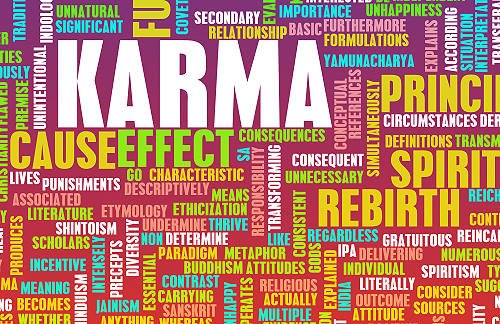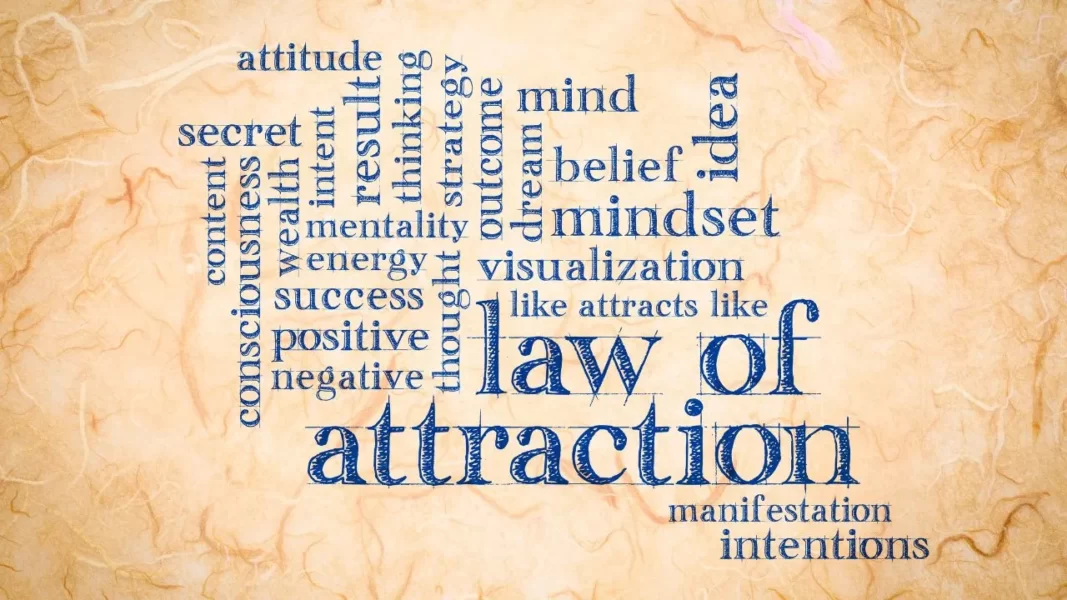12 Laws of Karma: Understanding the Concept of Karma
In the intricate tapestry of life, there exists a profound and timeless philosophy that transcends cultures, religions, and borders – Karma. This universal concept, deeply rooted in Eastern thought and spiritual traditions, offers a profound understanding of the interconnections of our actions and their consequences. Karma, often seen as the cosmic law of cause and effect, extends its influence far beyond the boundaries of any particular belief system, offering guidance and insight into the very fabric of existence.
Karma, which originated in ancient Indian and Tibetan traditions, isn’t a mere doctrine but a way of life, a guiding principle that shapes our interactions with the world around us. It’s a reminder that our choices, both big and small, have a profound impact not only on our own lives but on the greater cosmic order.
As we embark on this journey through the 12 Laws of Karma, we’ll delve into its rich history, explore its core principles, and decipher the intricate web of cause and effect that governs our existence. We’ll unravel the 12 distinct laws that encompass this profound concept and learn how they can be applied in our everyday lives, leading us toward a path of greater wisdom, compassion, and purpose.
So, let’s venture forth into the depths of Karma, a philosophy that beckons us to understand the significance of our actions, the balance we seek to maintain, and the intricate dance of life’s energies. In doing so, we aim to comprehend not only the 12 Laws of Karma but the very essence of our existence.
Karma, often referred to as the universal law of cause and effect, is a concept deeply rooted in Eastern philosophy and spirituality. Its origins can be traced back to ancient Indian and Tibetan traditions, where it has been embraced as a fundamental principle of life for centuries.

The Core Principles of Karma
Karma is based on several core principles that shape our understanding of it. These principles include:
The Law of Cause and Effect
At the heart of Karma is the Law of Cause and Effect. It asserts that every action has a consequence, and these consequences can be positive or negative, depending on the nature of the action. In essence, the energy you put into the world returns to you.
The Law of Balance
Karma seeks to maintain balance in the universe. This means that if you bring positivity and kindness into the world, these qualities will eventually find their way back to you. Likewise, negative actions will lead to negative consequences.
The Law of Karma in Action
Karma is not a passive force. It’s constantly in motion, responding to our actions and shaping our lives. Understanding these core principles is crucial to comprehending the 12 Laws of Karma.

The 12 Laws of Karma
Karma is not limited to a single law; it encompasses 12 distinct laws, each of which plays a unique role in our lives. These laws are as follows:
The Law of Pure Desire
This law emphasizes the importance of setting intentions and desires that are pure and untainted by selfishness or harm.
The Law of Humility
Humility is key to living in harmony with Karma. It teaches us to recognize our place in the grand scheme of things.
The Law of Growth
Karma encourages personal growth and self-improvement. It rewards those who strive to be better.
The Law of Responsibility
This law highlights the significance of taking responsibility for your own actions and their consequences.
The Law of Connection
Karma reminds us that we are all interconnected. Every action we take affects others and, in turn, influences our own lives.
The Law of Giving and Hospitality
Generosity and hospitality are essential aspects of living in accordance with Karma.
The Law of Here and Now
Karma thrives in the present moment. This law teaches us to focus on the here and now, as the present shapes our future.
The Law of Change
Change is inevitable. Karma teaches us to embrace it and learn from it.
The Law of Patience and Reward
Karma may not provide immediate results, but patience is rewarded in due time.
The Law of Significance and Inspiration
Every action, no matter how small, has significance and can inspire others.

The Law of Manifestation
Our thoughts and desires have the power to manifest in reality.
The Law of Gratitude
Expressing gratitude is a fundamental part of living in accordance with Karma.
Applying Karma in Daily Life
To apply the principles of Karma in your daily life, you can start by:
– Being mindful of your actions and their potential consequences.
– Cultivating a sense of responsibility for your choices.
– Practicing kindness, generosity, and humility.
– Focusing on the present moment and embracing change.
Conclusion
In conclusion, the 12 Laws of Karma offer a profound philosophy for living a more meaningful and purposeful life. By understanding and applying these laws, one can navigate life’s challenges with greater wisdom and compassion.
FAQs
FAQ 1: Is Karma a religious concept?
Karma is a concept rooted in spirituality but is not tied to any specific religion. It is a universal principle that transcends religious boundaries.
FAQ 2: Can one change their Karma?
Karma can be changed through conscious effort and a commitment to positive actions. Your present choices influence your future Karma.
FAQ 3: How do you know if your Karma is good or bad?
The consequences of your actions and the quality of your life experiences are indicators of your Karma. If you experience positivity and balance, your Karma is likely good.
FAQ 4: Does Karma only apply to individuals?
Karma applies to individuals, but it also extends to communities and even the entire world. The collective actions of society can have karmic consequences.
FAQ 5: What are some real-life examples of Karma?
Real-life examples of Karma can include acts of kindness leading to unexpected assistance, dishonesty resulting in mistrust, and generosity resulting in improved relationships.
https://www.healthline.com/health/laws-of-karma
https://motivationquotes.online/
https://optimalhealth.in/top-100-ultimate-books-for-personality-growth/

